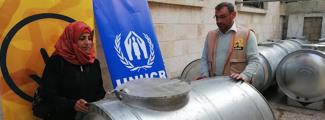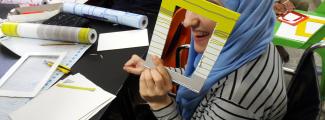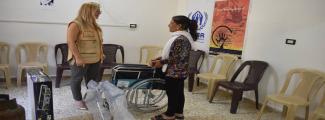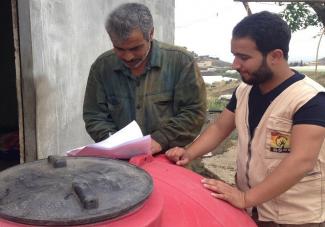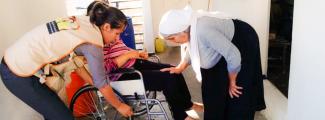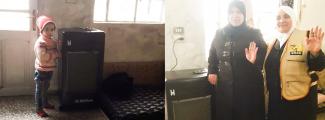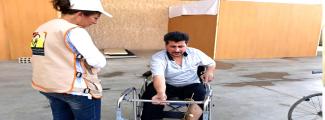Mr. Akram, a 63-year-old retired employee, is a new return to Al Hosen with his family of four and his elderly mother with special needs in a house in the bush far from the city's serviced residential area.
Mr. Akram was identified after his visit to the community center in Al-Hosn and explained his conditions and taking all the information. Accordingly, the family was visited by a team of volunteers of the center to make an assessment need of the family conditions.
The evaluation found that the family suffers from extreme poverty and there is no provider except for Mr. Akram, who works in agricultural lands, and who suffers from chronic diseases. The house where the family lives is in a very bad condition and needs many services. The family uses candles for lighting, which is a burden on the family to buy. It also causes danger to the old mother as she moves around the house when the power is down due to her poor vision.
Mr. Akram asked for a battery and LEDs. And they were given to him from the file of in-kind assistance, and when visiting the family after providing the service and talking with them about the importance of the service, Mr. Akram said: " God bless you all and thank you for everything”.


